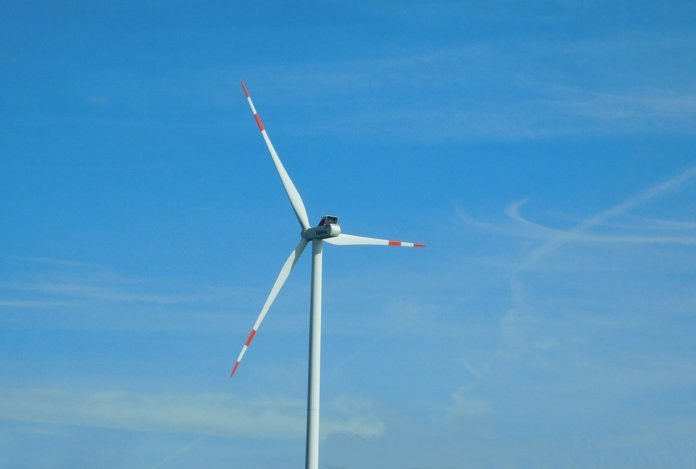Republican North Carolina Sens. Harry Brown, Paul Newton and Norman W. Sanderson have filed a bill that seeks to prohibit new wind energy development in certain parts of the state.
Filed on March 27, S.B.377, the Military Base Protection Act, proposes prohibiting the “construction, operation or expansion of wind energy facilities in areas of the state where impacts of vertical obstructions have been determined to be significantly high, with a high risk for degrading safety and the military’s ability to perform aviation training.”
Citing a North Carolina Department of Commerce and Department of Environmental Quality map, “Vertical Obstruction Impact on the NC Military Mission,” the bill seeks to stop wind projects from being built in an area of the map designated in red as “significant” in terms of disrupting military activity. The measure would apply to applications for permits for a proposed wind farm or a proposed wind farm expansion.
According to the Sierra Club’s North Carolina Chapter, the “anti-wind” bill would ban onshore wind development “across much of eastern North Carolina,” including all or part of 29 counties, including Pasquotank and Perquimans, where the Amazon Wind Farm US East is operating.
“Wind energy has been a proven financial boost in two Tier I counties in northeastern North Carolina, from the time construction began on the Amazon wind farm until today,” says Erin Carey, the N.C. Sierra Club’s coastal conservation program coordinator. “That wind farm was sited and approved after an extensive review that included the Department of Defense (DoD) Siting Clearinghouse.
“The DoD Siting Clearinghouse exists precisely to provide the direct oversight necessary to protect any current or anticipated military activities in the United States, including and beyond the aviation training mentioned in S.B.377,” she continues. “There is no need for the state to second-guess the Pentagon’s own experts on whether any proposed wind farm would impede military activities.”
Ivan Urlaub, executive director of the NC Sustainable Energy Association, adds that the group is “disappointed in this latest attempt to stifle economic development in eastern North Carolina” and is against “any unsupported and unnecessary restrictions on clean energy opportunities in our state.”
“The map referenced in Senator Brown’s bill specifically states that projects should be given the highest level of scrutiny during the permitting process,” Urlaub says. “The map does not support or call for a ban on wind or tall structures in any part of the state. The state already has one of the nation’s most stringent permitting policies, which is reinforced by a strong Department of Defense process that has proven to work effectively time and time again.”





THAT’S WHAT I’M TALKING ABOUT, NC! Keep those cancer-causing metal fans away from our boys in uniform!! Did you know that the birb population has become nearly EXTINCT from turbines?? Ridiculous! If you support our troops, you can’t support the turbines.
The “Empires” military planes fly as low as 500 ft. here in military & big business friendly Central Texas. You would think we were preparing for war? What a notion! Anyway…
We have Goldwind (Chinese) Sciences windmills everywhere. No one seems to cares here, excepting one day property owners when their land is worth less or didn’t read the fine print on decommissioning responsibilities and costs.
This is a fake concern. Pilots are not allowed to fly under 2000 feet without a special exemption, except in well-defined landing and take-off areas which are quite large. The tallest turbines in the world might reach 700 feet, but there are hardly any of those in the U.S. Most of the turbines in the U.S. are about 300 feet or so (less than 100 meters). The fossil fuel industry is running scared now that wind and solar are cheaper than they are. The internet is swamped with fake scare stories about circumstances in wind communities. Sadly, the other side… Read more »